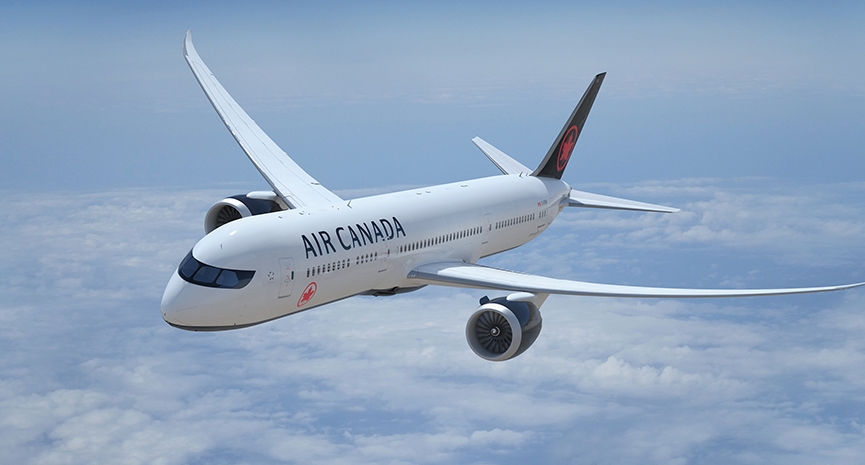Air Canada to support CAAFCER project led by NRC
Aviation - Air Canada has recently announced its participation in the Civil Aviation Alternation Fuel and Emissions Research project (CAAFCER), a research project led by National Research Council of Canada (NRC) to test the environmental benefits of biofuel use on contrails.

Apr 24, 2017: Air Canada has recently announced its participation in the Civil Aviation Alternation Fuel and Emissions Research project (CAAFCER), a research project led by National Research Council of Canada (NRC) to test the environmental benefits of biofuel use on contrails.
This project will use advanced sensing equipment mounted on a research aircraft operated by the NRC to measure the impact of biofuel blends on contrail formation by aircraft on five biofuel flights operated by Air Canada between Montreal and Toronto in the coming day's weather permitting. During these flights, the National Research Council of Canada will trail the Air Canada aircraft with a modified T-33 research jet to sample and test the contrail biofuel emissions. The sustainable biofuel is produced by AltAir Fuels from used cooking oil and supplied by SkyNRG.
Teresa Ehman, director, environmental affairs, Air Canada, said, We are pleased to support Canada's research on the additional benefits of aviation biofuel. This project is an important step in furthering the industry's understanding of how biofuel reduces aviation's carbon footprint and overall environmental impact. Air Canada recognises its environmental responsibilities and the importance of understanding and integrating environmental considerations into our business decisions.
Sheila Remes, vice president of strategy at Boeing Commercial Airplanes, said, We significantly improve aeroplane fuel efficiency through constant technology and operational improvements. But additional efforts are required to achieve aviation's ambitious carbon-reduction targets. Sustainable aviation fuels have the single greatest potential to reach those goals. Boeing is committed to supporting projects like this around the world to advance aviation's knowledge and growing use of biofuel.
A reduction in the thickness and coverage of contrails produced by the jet engines of aircraft could reduce aviation's impact on the environment, an important beneficial effect of sustainable biofuel usage in aviation.
This project involves six stakeholder organisations, with primary funding from the Green Aviation Research and Development Network (GARDN), a non-profit organisation funded by the Business-Led Network of Centres of Excellence of the Government of Canada and the Canadian aerospace industry. The project has further financial support from the NRC and the enabling support of Air Canada ground and flight operations.
In addition to Air Canada, other CAAFCER partners include Boeing, National Research Council Canada (NRC), SkyNRG, University of Alberta, and Waterfall.


